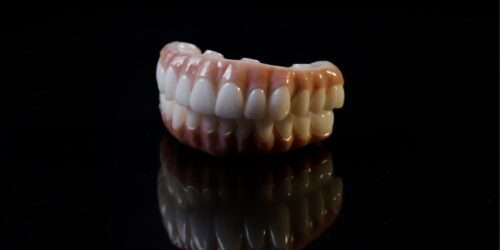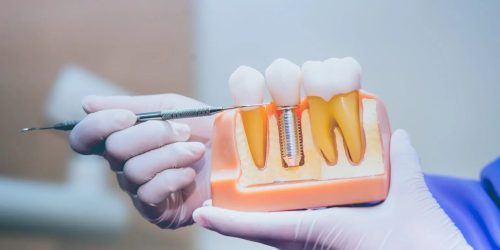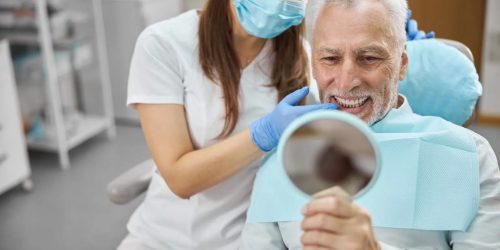I get this question all the time: “Doc, is there anything I can do that would help to make my implants successful?” The answer is…YES! First, how well you clean around your implants is, and always will be, the number one thing you can do to make them last as long as possible. The good news is there is something else you can do, and it’s really really easy. Let me introduce you to my good friend: Vitamin D. Most of us could use a little more in our lives.
“How do you know I need vitamin D?”
You’re probably thinking, “Of all the vitamins out there, what in the world makes you think my vitamin D levels might be low?!?!” Well, you’re not alone! A 2019 study states that vitamin D deficiency throughout the world is close to 70% (1). That’s right, that means almost 3 out of every 4 people on planet Earth don’t get enough vitamin D regularly. Luckily for you and I, there are two easy ways to increase vitamin D, and one of them is completely free and accessible to everyone!
Where/How can I get Vitamin D?
- The sun. That nice warm sunlight can do so much more than make you tan and sweaty. The way we get vitamin D through the sun is very unique because our body actually makes it instead of ingesting it from food. The UV rays from the sun (the same ones that cause sunburn) actually convert a chemical in your skin to vitamin D, which your body can then use for lots of different things. All you have to do is go outside in the sun for 5-30 minutes daily without sunblock and soak up some rays. But don’t overdo it! 30 minutes goes by fast when you’re having fun. Too much sun and I’ll have to write an article about Aloe Vera and cool baths (2).
- Supplementation. This means taking it in pill form. Some folks aren’t able to get their daily sunlight. Maybe you work nights, work indoors, or you just don’t like the sun. That’s okay! You can take Vitamin D pills. They usually come in doses of 1000 to 5000 IU. Personally, I take 5000 IU daily, because I am not able to get outside every day. A year’s supply of Vitamin D3 pills can currently be purchased from Amazon for under $30 per year, so it is very affordable. You should consult with your doctor to determine the best dose for you. Sometimes people need even higher doses that have to be prescribed because they are so deficient. Other times, vitamin D levels may be adequate and no supplementation is needed.
- Food. Vitamin D is actually not very common in foods, so it is unlikely that many people get enough of it from the food they eat. Some types of fish and vegetables contain low levels of vitamin D.
What in the World does Vitamin D have to do with Dental Implants?
It’s time to get down to the nitty gritty. What does any of this have to do with your dental implants? Firstly, vitamin D deficiency has been associated with up to a 300% increase in implant failure. You heard that right, low vitamin D means that it’s 3X more likely for your body to reject an implant. WHOA. That is a huge increase. If you’ve already had your implants placed, and you didn’t check your vitamin D, or you think your levels might be low, don’t worry. The rate of implant rejection is very low, so even with a 3x increase in potential issues, the rate is still minimal. BUT, it’s not too late! Get your vitamin D levels checked now and start supplementing if you need to. It’s too easy not to!
Let’s briefly go over the way vitamin D actually affects implants and their success. Vitamin D plays a significant role in a lot of processes in your body. Immune system and bone formation are two of these processes in which vitamin D is a major player. These two systems go hand in hand with dental implants. When an implant first comes in contact with bone, your body realizes something happened. Your immune system starts checking out the situation, and decides if it will let the implant stay, or banish it like Will Smith from the Oscars.

After the immune system decides the implant can stay, Vitamin D then plays a role in healing the bone. With all this in mind, ideally, you want to make sure your vitamin D levels are adequate BEFORE and AFTER implant placement. Often, when you are taking supplements trying to increase levels, it can take some time for those levels to increase. It won’t happen right away. This is why you want to start a few weeks before your implants are placed, and keep taking it afterwards.
“I May Not Get Implants, but I’m Curious about Vitamin D.”
Well I’m glad you asked! Here are some other important things that vitamin D plays a role in. Go get your levels checked because you’re about to see how valuable it can be in other aspects of your life! Here’s a list of just a few big ones:
- Fatigue
- Cancer prevention
- Hormone levels
- Cardiovascular disease
- Bone health
- Depression and mood
Get out there and enjoy some sun!
All advice is my opinion and you should seek professional medical advice from your physician before taking any action.
– Blake Vidrine, DDS

- Woo YS, Kim S, Jeong JH, Jung YE, Kim MD, Bahk WM. Vitamin D Deficiency/Insufficiency among Inpatients with Depressive Symptoms. Clin Psychopharmacol Neurosci. 2019 Feb 28;17(1):121-124. doi: 10.9758/cpn.2019.17.1.121. PMID: 30690947; PMCID: PMC6361047.
- Srivastava SB. Vitamin D: Do We Need More Than Sunshine? Am J Lifestyle Med. 2021 Apr 3;15(4):397-401. doi: 10.1177/15598276211005689. PMID: 34366736; PMCID: PMC8299926.




